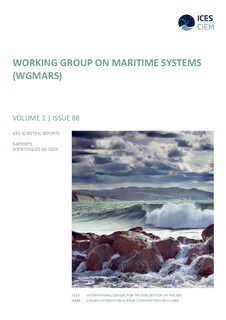| dc.description.abstract | The overarching focus of Working Group on Maritime Systems (WGMARS) has been on under-standing the conceptualisation and implementation of Integrated Ecosystem Assessments (IEAs) in ICES and more broadly. From 2017-2019, the Working Group reviewed academic literature and ICES documents, interviewed the chairs of the ICES Regional Seas Working Groups (which are charged with conducting IEAs), and heard member reports on the relationships among IEAs, Ecosystem-Based Management, and Marine Spatial Planning in various European nations, the EU, and the US. We have also examined how IEAs are used in management and attempted to use behavioural economics to think about the types of regulations that might be most effective in specific situations. WGMARS also highlighted the importance of having multiple disciplines from the natural and social science, and the humanities (e.g. history), contributing to conceptu-alisation and implementation of IEA, as well as stakeholders who are likely to be impacted by changes in regulations (e.g. industries, communities, and local, regional, and national govern-ment bodies other than those implementing the regulations in question). To foster this type of multidisciplinary (i.e. involving natural and social science, as well as the humanities) and trans-disciplinary (i.e. involving stakeholders) work, we have held workshops with other ICES Work-ing Groups and with government officials from the US (the New England and the Mid-Atlantic Fisheries Management Councils) and the Netherlands (officials of Rijkswaterstaat, the Dutch na-tional body responsible for roads, waterways, and water systems and part of the Ministry of Infrastructure and Water Management). Our findings suggest that the research work on and for IEAs is still very much a work in progress with strong variance in the way IEA work is approached. Different Regional Seas Working Groups, for instance, are at very different points in moving toward full IEA, especially regarding their inclusion of social sciences and humanities and their inclusion of and types of collaboration with stakeholders. Moreover, structural conditions to create a demand and underlying science varies significantly between different regional seas regions. | |
